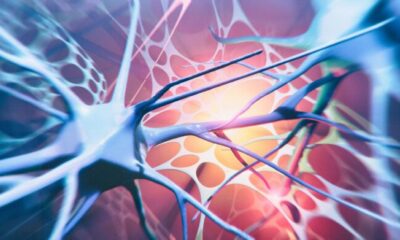Science
Virginia Tech Launches Self-Driving Labs with Agentic Science

A pioneering approach known as agentic science is taking shape at Virginia Tech, where artificial intelligence (AI) agents are being harnessed to enhance scientific research. Led by Hongliang Xin, a chemical engineering professor, this initiative involves collaboration with renowned experts John Kitchin from Carnegie Mellon University and Heather Kulik from the Massachusetts Institute of Technology. Their recent commentary published in Nature Machine Intelligence outlines the potential, challenges, and ethical considerations of integrating AI into scientific practices.
Understanding Agentic Science
Agentic science represents a significant shift in how scientific discoveries can be approached. According to Xin, this paradigm allows AI to play a central role in reasoning, planning, and executing tasks in both digital and physical laboratory environments. He likens the collaboration between human scientists and AI agents to an orchestra, where the human serves as a conductor, guiding the various agents that perform specialized functions. This collaboration aims to create a more harmonious and efficient research process.
Kulik highlights the transformative potential of agentic science, indicating that it enables researchers to explore hypotheses that may have previously been overlooked. The automation of tedious tasks could greatly accelerate innovation across various fields, including environmental science and healthcare. “The speed and efficiency of AI agents will allow us to innovate where traditional methods have struggled,” she notes.
The Current Landscape of AI in Research
The timing for the emergence of AI agents in scientific research is critical. Recent advancements in language models and the ability to train large AI systems on extensive datasets have made agentic science feasible. Xin points out that the overwhelming volume of scientific literature poses a significant challenge for researchers, who often find it difficult to keep pace with new developments. AI’s capability to digest and synthesize this information offers a valuable solution.
Kitchin emphasizes the importance of maintaining a “person in the loop” to ensure the safety and reliability of AI systems in laboratories. He argues that, just as human researchers are accountable for their actions, the same principle should apply to AI. “We cannot foresee every potential risk, but human oversight remains crucial,” Kitchin states.
The collaboration among institutions is vital for the success of agentic science. Kitchin explains that the complexity of AI agents and their applications is vast, making it essential for researchers to share insights and learn from one another. “If each institution develops its own agents without collaboration, we risk missing the broader opportunities these technologies present,” he adds.
As Virginia Tech forges ahead with this innovative approach, the implications for scientific research are profound. Agentic science not only promises to enhance the efficiency and efficacy of labs but also invites a reevaluation of the discovery process itself. With ongoing advancements, the future of research may very well be shaped by the synergy between human intellect and AI capabilities.
-

 Technology5 months ago
Technology5 months agoDiscover the Top 10 Calorie Counting Apps of 2025
-

 Health3 months ago
Health3 months agoBella Hadid Shares Health Update After Treatment for Lyme Disease
-

 Health3 months ago
Health3 months agoErin Bates Shares Recovery Update Following Sepsis Complications
-

 Technology4 months ago
Technology4 months agoDiscover How to Reverse Image Search Using ChatGPT Effortlessly
-

 Technology1 month ago
Technology1 month agoDiscover 2025’s Top GPUs for Exceptional 4K Gaming Performance
-

 Technology3 months ago
Technology3 months agoElectric Moto Influencer Surronster Arrested in Tijuana
-

 Technology5 months ago
Technology5 months agoMeta Initiates $60B AI Data Center Expansion, Starting in Ohio
-

 Technology5 months ago
Technology5 months agoRecovering a Suspended TikTok Account: A Step-by-Step Guide
-

 Health4 months ago
Health4 months agoTested: Rab Firewall Mountain Jacket Survives Harsh Conditions
-

 Lifestyle5 months ago
Lifestyle5 months agoBelton Family Reunites After Daughter Survives Hill Country Floods
-

 Health3 months ago
Health3 months agoAnalysts Project Stronger Growth for Apple’s iPhone 17 Lineup
-

 Technology4 months ago
Technology4 months agoHarmonic Launches AI Chatbot App to Transform Mathematical Reasoning





















